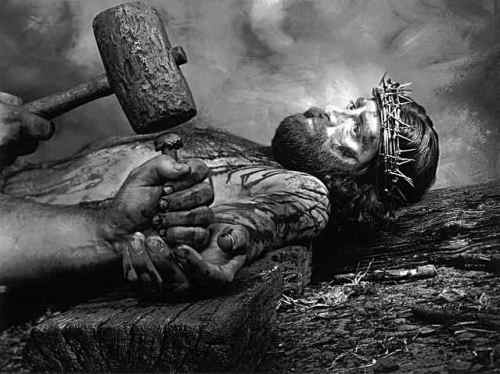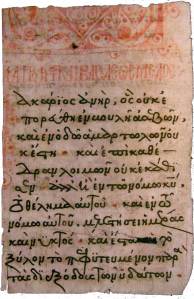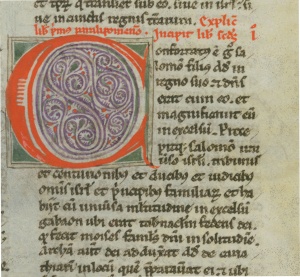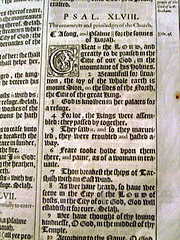I would love to say that the heavens tore open and the angels came down and I saw God, but that is not how it went. I would love to be able to say it is because Christians are such nice people who are leading the revolution to make the world a better place, but it is not like that either. I love books so instead it came through a book: the Bible.
I used to be a Marxist – I rarely called myself that back then, partly because Marxism just seemed like common sense to me. I was a materialist: everything is just matter in motion, no gods need apply. Religion was for old women, like my very Catholic grandmother. No one with any brains would go for that stuff.
I promised my wife that I would read the whole Bible. So I did, from end to end. I was shocked: God told the Jews to wipe out people, to play dirty tricks on them. It was full of all these rules about animal sacrifice and these overly long visions of prophets that made them seem more mad than wise. Then there was Jesus performing miracles – and everyone knows that miracles go against science. Etc.
So at first reading it did more harm than good. My mother-in-law, another very religious old woman in my life, said it was because I had read it like a paperback novel. I forgot to pray! Right: pray to a god who is not there. And besides, I am not that simple-minded when it comes to books. But it was that – knowing about books – that was my undoing.
I had read communist histories of China so I knew what a history book is like when it is blinded by its own ideas. To my surprise the Bible was not like that. And the miracles were rare and surprisingly matter-of-fact.
Then there was the Resurrection when Jesus rose from the dead. The truth of Christianity rises or falls on that one piece of history. I thought it would take me 30 seconds to show how it could not be true. But 30 seconds turned into 30 minutes then 30 hours then 30 days then 30 months – it became all I could think about – and yet still I failed. I thought of everything, like maybe he played dead or his followers went mad. Surprisingly none of it held up.
I did not want to be a Christian. First, it is what my wife and mother-in-law wanted and I did not want to give in to them (and in the end I did not: I became something that in their eyes was even worse than a Marxist: a Catholic. It nearly tore my marriage apart). Second, it went against my intellectual pride. I did not want to be told the answers – I wanted to find them out for myself! But then I remembered something a favourite schoolteacher once told me: the truth is more important than your pride.
See also:
- Seven books that most influenced me – the Bible was one of them, of course, but this post provides more of the background. For example, that bit about “No one with any brains would go for that stuff” had to be taken to pieces by other authors.
- Bible
- Marx
- Catholic
- Christianity
- Jesus Christ
- Does the Bible say that slavery is wrong? – this post grew out of comments there










